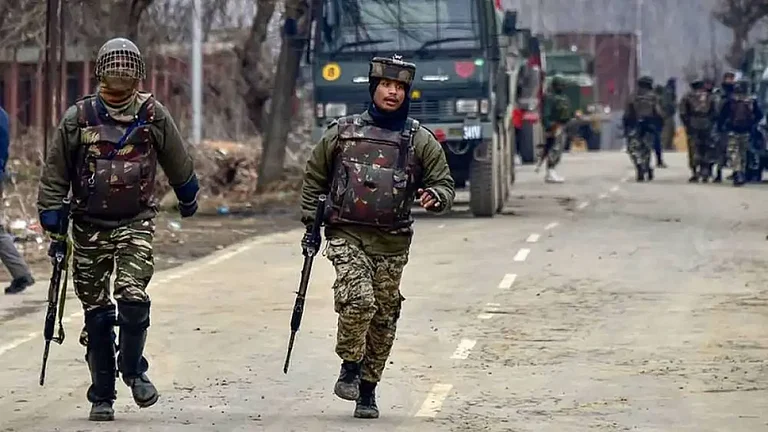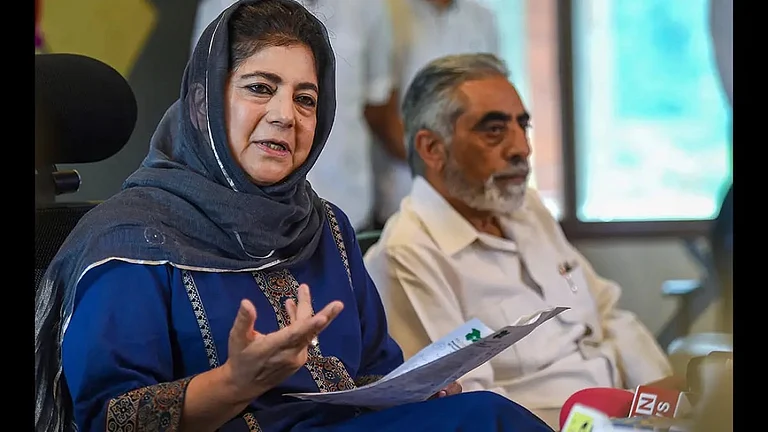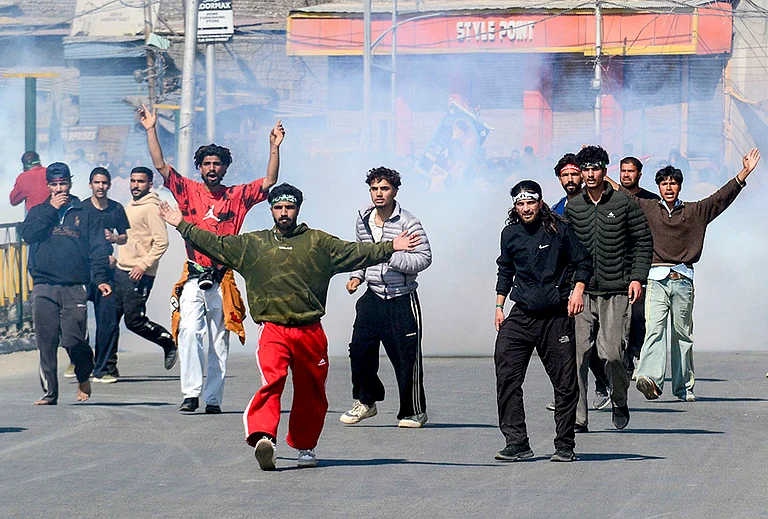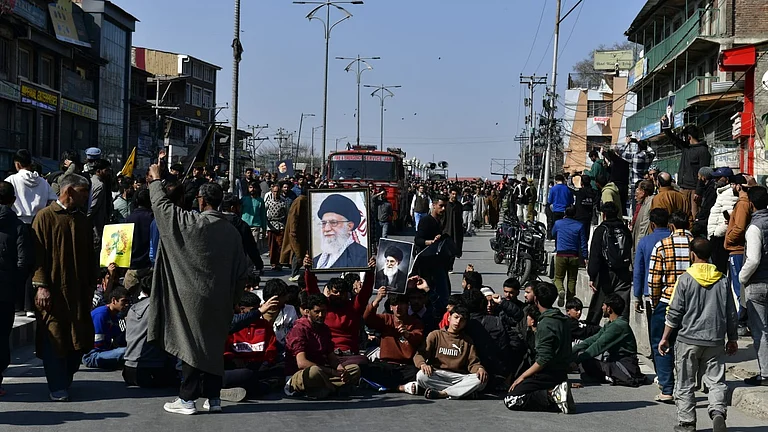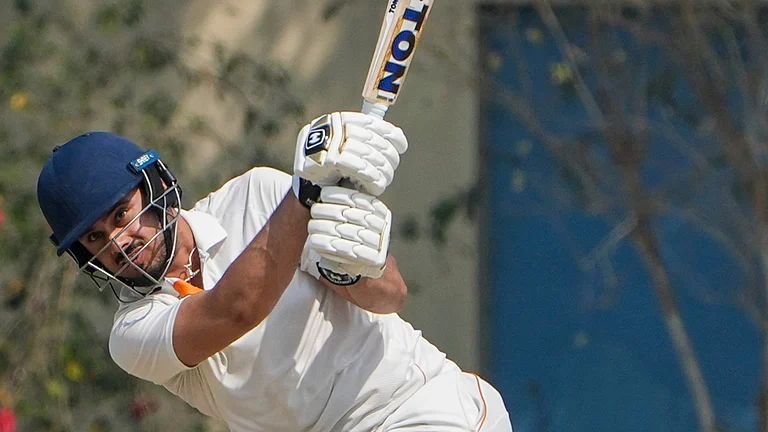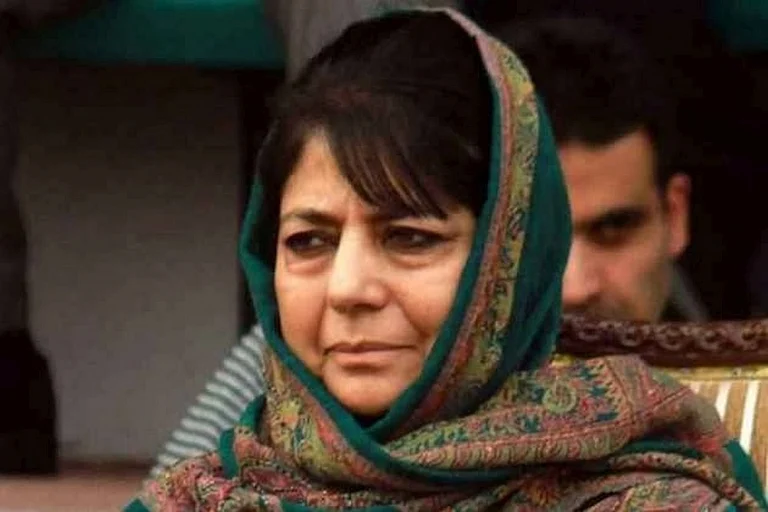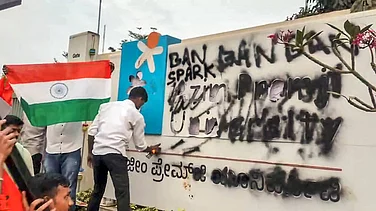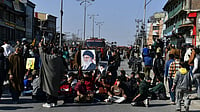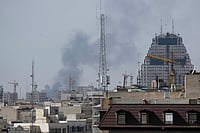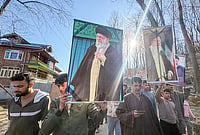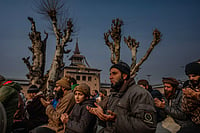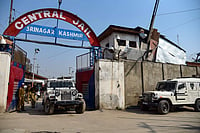
Summary of this article
Mehbooba Mufti, Mirwaiz Umer Farooq, and other leaders placed under house arrest ahead of Abdul Gani Bhat’s funeral.
Bhat, a moderate voice in the separatist camp, had advocated for dialogue with the Centre for a lasting peace in Jammu and Kashmir.
Political leaders and legal experts have described the detentions as arbitrary.
Several separatist and mainstream leaders, including former chief minister Mehbooba Mufti and Hurriyat Chairman Mirwaiz Umer Farooq, were placed on house arrest from Thursday, September 18, 2025. The move is purportedly to prevent them from offering condolences to the family of former Hurriyat leader, Professor Abdul Gani Bhat, who died on the day.
Bhat, seen as a moderate in the Hurriyat, belonged to groups banned by the Central government after Article 370's revocation. He joined a separatist delegation that met Prime Minister Atal Bihari Vajpayee and Home Minister L. K. Advani in 2004 and held talks with PM Manmohan Singh in 2005 and 2006.
Bhat, who had been unwell, died in Sopore. Several political leaders say they were prevented from offering condolences to the family.
Leaders placed under House Arrest
Hurriyat Chairman Mirwaiz Umer stated he was put under house arrest and prevented from attending Prof Bhat's funeral in Sopore. He described his long-standing friendship with Bhat and expressed frustration at being denied the chance to pay last respects, saying the authorities forced the family to conclude the funeral hastily and denied many the chance to attend.
Former Chief Minister and PDP President Mehbooba Mufti says she was also placed under house arrest. "Placing political leaders under house arrest to stop us from visiting Sopore to offer condolences on Prof Abdul Gani Bhat's death exposes the harsh, undemocratic reality in Jammu and Kashmir," she says.
PDP spokesperson Mohit Bhan says authorities barred Mehbooba from visiting Sopore by locking her in her house at Khimber, Srinagar. "Mehbooba ji planned to visit Sopore to offer condolences but was placed under house arrest," he says.
Mehbooba compared her detention to the previous public anger after the installation of the Ashoka emblem at Hazratbal mosque. She said this anger reflected an "unmistakable message from people pushed to the edge."
"The spontaneous public anger at Hazratbal Dargah was not isolated. It was a clear message from people pushed to the edge. The BJP ignores this truth, refusing to learn from years of anguish and suppressed emotions. It is clear that the BJP is uninterested in peace in Kashmir and instead keeps the region in turmoil, weaponising unrest for political gain elsewhere. This approach is irresponsible, dangerous, and reprehensible."
Others detained included former Minister and People's Conference President Sajad Lone, his brother Bilal Gani Lone, and Itiihadul Muslimeen President Masroor Abbas Ansari.
In a social media post, Sajad says, “ I have been put under house arrest in order to prevent me from visiting Botingoo, the ancestral village of Professor Ghani sahib. I fail to understand the need for this. Professor Sahib was a pacifist and literally long retired. A final goodbye is something that we all deserve.”
Police heavily deployed outside Bilal Lone's residence in Srinagar, preventing him from leaving. "A security vehicle was placed outside my house to stop me from going to Sopore," he says.
Masroor reports heavy security outside his residence in Shalteng, Srinagar, and says he was not allowed to go to Sopore. "I've been told the house arrest will last until this evening, but it is unlikely curbs will be lifted tomorrow, as it is Friday," he says.
Frequent house arrests
Kashmiri leaders have frequently been placed under house arrest by authorities, who cite the need to maintain peace. The late separatist leader and Hurriyat (G) chairman, Syed Ali Shah Geelani, spent several years under house arrest. Following the revocation of Article 370 on August 5, 2019, many mainstream leaders were either confined to their homes or moved to government-run guest houses and a convocation center. The Sher-i-Kashmir International Convention Centre (SKICC) was converted into a jail, requiring families of detained politicians to submit applications for visitation after Jammu and Kashmir's special status was abrogated. While authorities claim such actions maintain peace, both political leaders and legal experts have questioned these measures, calling them unconstitutional and arbitrary.
Advocate G. N. Shaheen states that the house arrest violates the Constitution and law. “This is done under the guise of Cr PC 144, which bars assembly, but no procedure is adopted to place leaders under house arrest. To place someone under house arrest, there must be a prior case. The building used for detention must be declared a prison,” he says.
Death of a Moderate Leader
Professor Bhat, also Hurriyat Chairman, was considered a moderate voice in Jammu and Kashmir’s separatist camp. A professor of Persian, he was terminated from service after associating with the Muslim United Front (MUF), which contested elections before the eruption of militancy in Jammu and Kashmir. Several MUF leaders who lost in what were called rigged elections later joined separatism. As part of New Delhi’s outreach to Pakistan, Bhat was among the few leaders allowed to visit Pakistan and meet its political leadership to work toward settling the Kashmir issue. He was seen as keen to engage New Delhi for lasting peace in Jammu and Kashmir and stayed with the separatist camp led by Mirwaiz Umer, even after his party, the Muslim Conference, was banned by New Delhi after 2019.
Bhat stayed in the moderate camp led by Mirwaiz, Hurriyat (M), rather than joining the faction led by Syed Ali Shah Geelani, Hurriyat (G). The Hurriyat split into two factions after the 2002 assassination of separatist and People’s Conference leader Abdul Gani Lone, who advocated dialogue with the Centre. Geelani opposed such talks and instead supported Jammu and Kashmir's accession to Pakistan.
Mirwiaz says Professor Bhat was a sane voice, not only influenced by Sufism but also able to interpret dreams. "In dialogue with the Centre, his role was crucial. Solutions such as joint management of Jammu and Kashmir, porous borders, and demilitarisation began to emerge as possibilities through Hurriyat's discussions with the Centre, with Professor Bhat playing a key part," he says.
Bilal says the late leader always championed dialogue. "He supported talks and negotiation for lasting peace in Jammu and Kashmir," says Bilal.
On X, Chief Minister Omar Abdullah described Bhat as someone who always advocated dialogue. "I’m saddened by the passing of senior Kashmiri political leader and academician Professor Abdul Gani Bhat. Our political ideologies differed, but I remember him as very civil. He had the courage to support dialogue when many believed violence was the only way and met then PM Vajpayee and Deputy PM Advani."



